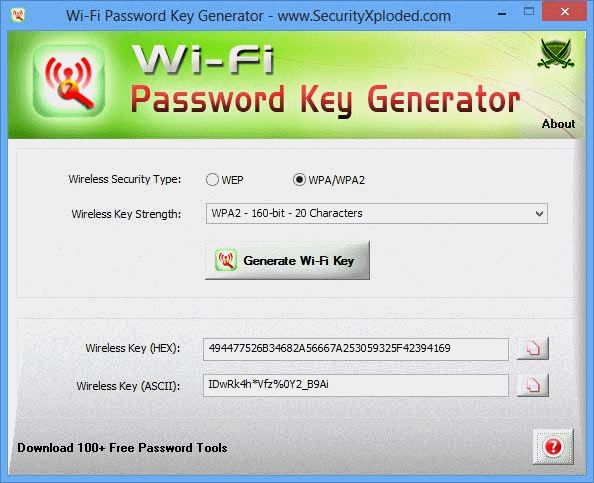Generate 256 Bit Key Java
- Openssl Generate 256 Bit Key
- Generate 256 Bit Key Java Download
- Generate 256 Bit Key
- Generate Random 256 Bit Key Java
- 256 Bit Color
RandomKeygen is a free mobile-friendly tool that offers randomly generated keys and passwords you can use to secure any application, service or device. Generate a New Set of Random Passwords and Keys. CodeIgniter Encryption Keys - Can be used for any other 256-bit key requirement. 160-bit WPA Key. 504-bit WPA Key. 64-bit WEP Keys. Generate an AES key plus Initialization vector (iv) with openssl and; how to encode/decode a file with the generated key/iv pair; Note: AES is a symmetric-key algorithm which means it uses the same key during encryption/decryption. Generating key/iv pair. We want to generate a 256-bit. Apr 27, 2016 Now imagine how many combinations there must be for a 256-bit key yes basically 2 256 possible combinations and don’t forget that even going from a 128-bit key to a 129-bit key would not just double the combinations, it would increase it exponentially! In summary if you’re going for key size, a 128-bit key would be more than enough and a.
Key generators are constructed using one of the getInstance class methods of this class.
Openssl Generate 256 Bit Key
KeyGenerator objects are reusable, i.e., after a key has been generated, the same KeyGenerator object can be re-used to generate further keys.
- Learn to use Java AES 256 bit encryption to create secure passwords, and decryption for password validation. To read simple AES encryption, read linked post. AES – Advanced Encryption Standard. AES is a symmetric encryption algorithm. It was intended to be easy to implement in hardware and software, as well as in restricted environments and offer good defenses against various attack techniques.
- Apr 03, 2020 A cryptographic hash can be used to make a signature for a text or a data file. In this tutorial, let's have a look how we can perform SHA-256 and SHA3-256 hashing operations using various Java libraries. The SHA-256 algorithm generates an almost-unique, fixed-size 256-bit (32-byte) hash. This is a one-way function, so the result cannot be.
- Apr 14, 2020 The service uses the device public key (uploaded before the JWT is sent) to verify the device's identity. Cloud IoT Core supports the RSA and Elliptic Curve algorithms. For details on key formats, see Public key format. Generating an RSA key. You can generate a 2048-bit RSA key pair with the following commands.
There are two ways to generate a key: in an algorithm-independent manner, and in an algorithm-specific manner. The only difference between the two is the initialization of the object:
Generate 256 Bit Key Java Download

- Algorithm-Independent Initialization
All key generators share the concepts of a keysize and a source of randomness. There is an
initmethod in this KeyGenerator class that takes these two universally shared types of arguments. There is also one that takes just akeysizeargument, and uses the SecureRandom implementation of the highest-priority installed provider as the source of randomness (or a system-provided source of randomness if none of the installed providers supply a SecureRandom implementation), and one that takes just a source of randomness.Since no other parameters are specified when you call the above algorithm-independent
initmethods, it is up to the provider what to do about the algorithm-specific parameters (if any) to be associated with each of the keys. - Algorithm-Specific Initialization
For situations where a set of algorithm-specific parameters already exists, there are two
initmethods that have anAlgorithmParameterSpecargument. One also has aSecureRandomargument, while the other uses the SecureRandom implementation of the highest-priority installed provider as the source of randomness (or a system-provided source of randomness if none of the installed providers supply a SecureRandom implementation).
In case the client does not explicitly initialize the KeyGenerator (via a call to an init method), each provider must supply (and document) a default initialization.
Every implementation of the Java platform is required to support the following standard KeyGenerator algorithms with the keysizes in parentheses:
Generate 256 Bit Key

Generate Random 256 Bit Key Java
- AES (128)
- DES (56)
- DESede (168)
- HmacSHA1
- HmacSHA256